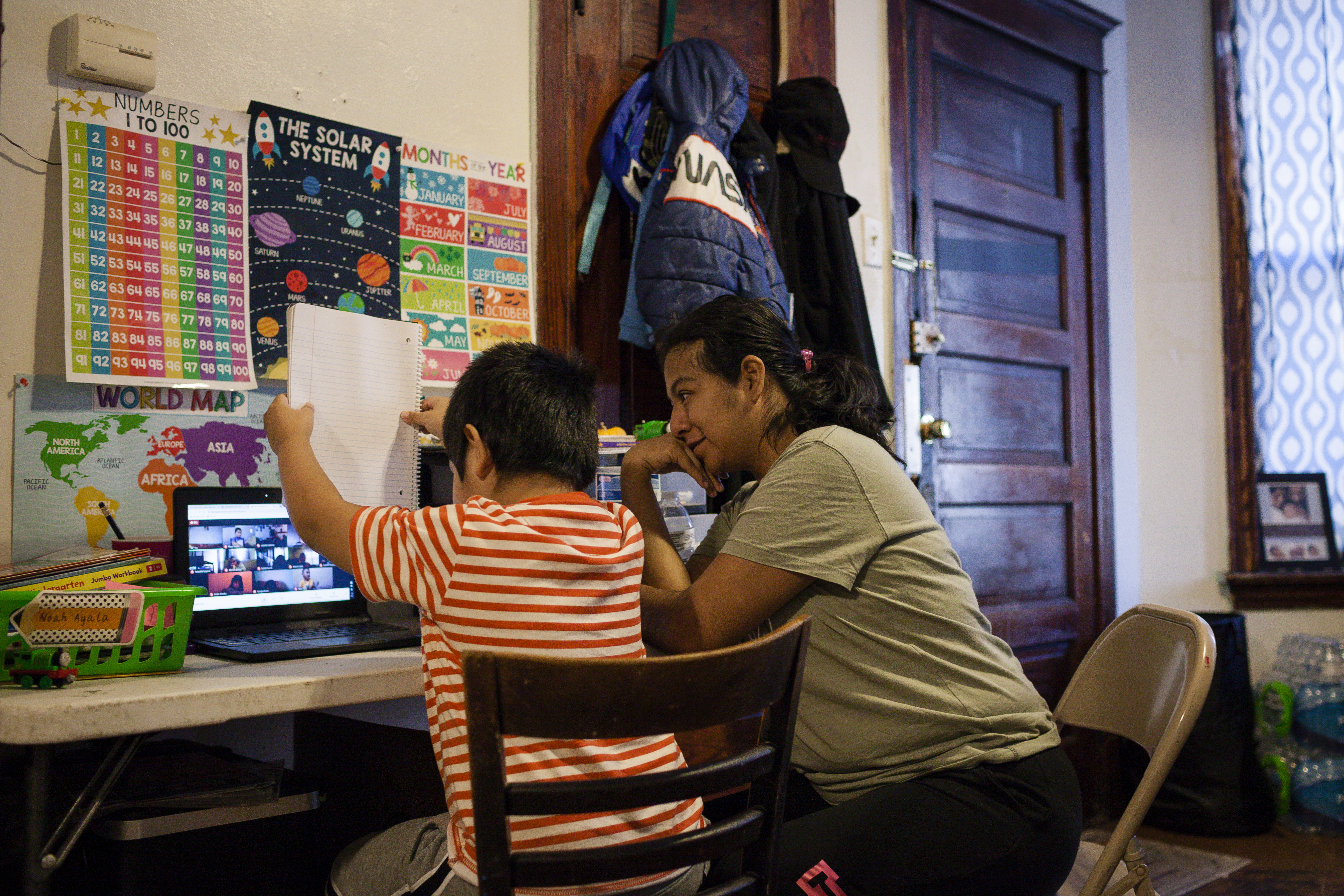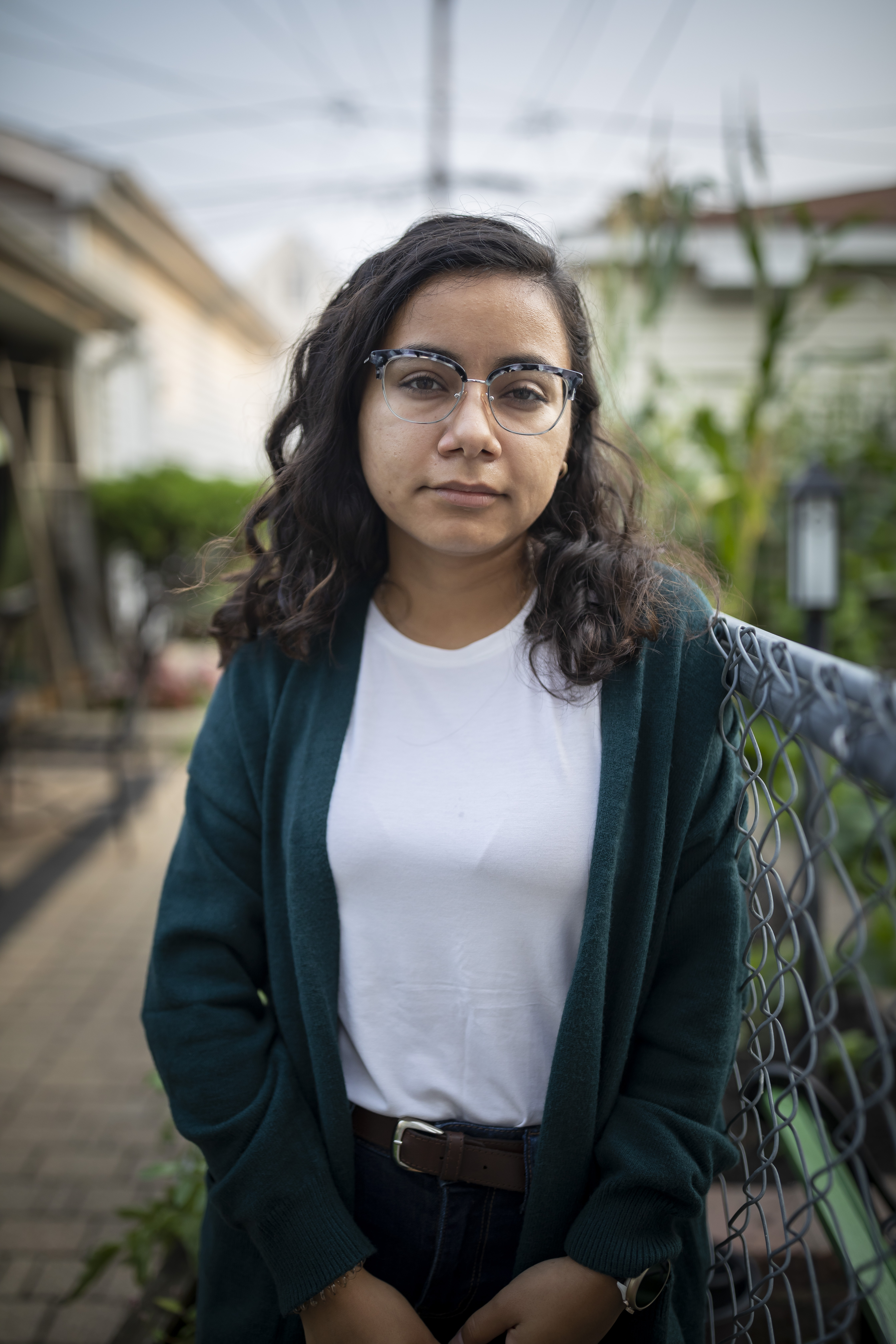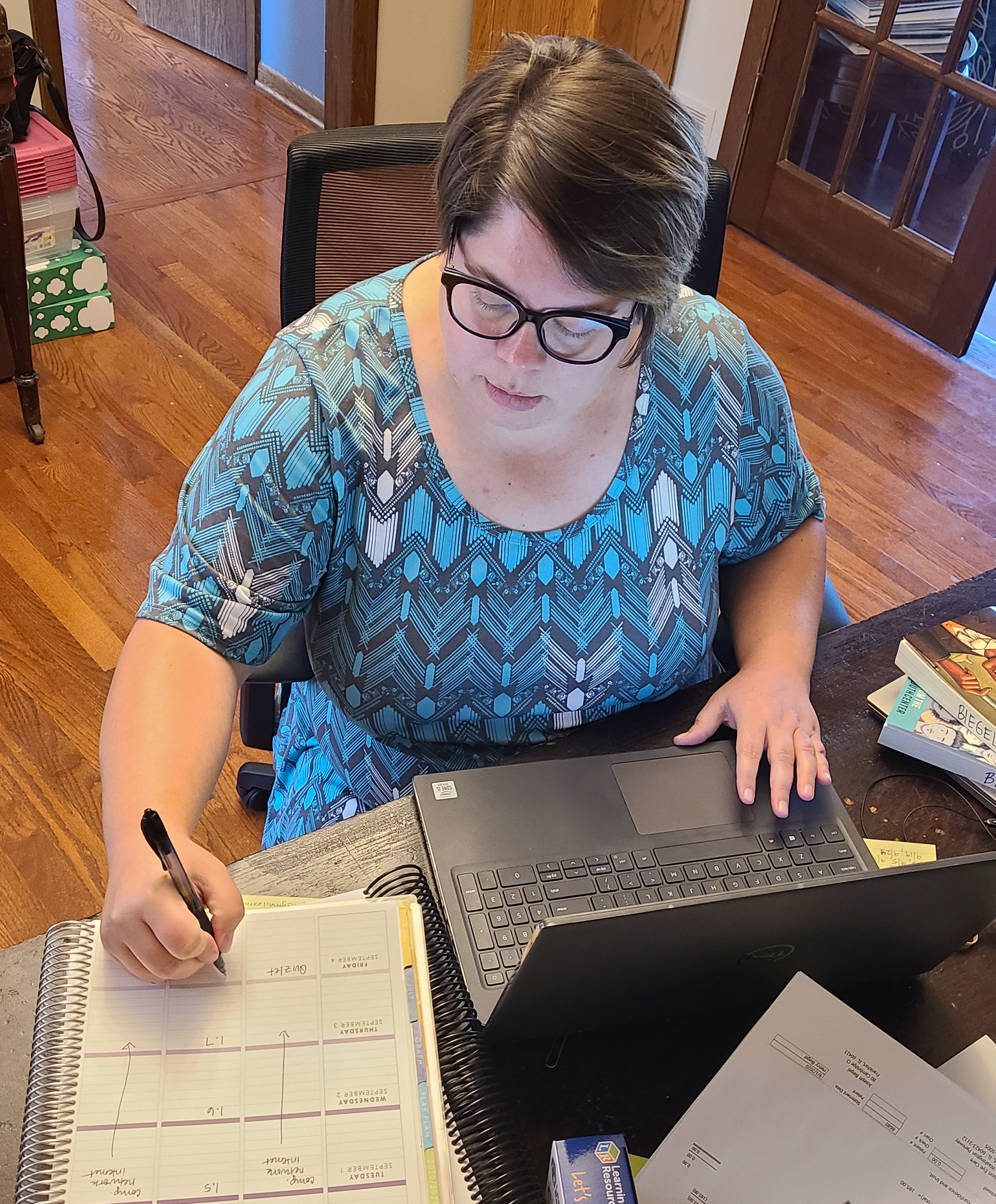At the beginning of this school year there were a lot of unknowns due to the pandemic. Would students and teachers be heading back to the classroom or would school be taught online? Many families were faced with a list of tough decisions about what to do. And now, more than two months later, the uncertainty continues.
Curious City has been hearing from Chicago area parents, guardians, students and teachers about the challenges and some of the rewards that have come with remote learning.
Like Azima Aidarov, a senior at Stevenson High School in Lincolnshire, Ill.:
“I am most worried about getting tired more easily from spending pretty much all day behind a screen because my classes are online, my clubs are online, my meetings with tutors are online. And I feel like that can really take a toll on a person’s mental health.”
And Emily Biegel, a mother and teacher in the career and technical education department at Thornton Fractional North High School in Calumet City, who has felt the stress:
“Today, as I was juggling hearing my daughter in the background, and teaching and trying to juggle all of those needs, I really wished we were all in a public school without fear of coronavirus.”
And Ashley McCall, a third grade bilingual English language arts teacher at Cesar E. Chávez Multicultural Academic Center in the Back of the Yards neighborhood on the Southwest Side of Chicago:
“Families are just really going through it. Anyone with kids that’s managing remote learning, so many of whom are managing multiple remote learning schedules that are all different, they don’t have the spaces, like this is wildly difficult.”
WBEZ’s education team has also been reporting on what families, students and teachers have been experiencing this fall. And in this episode, we’ll hear from two of them.
Reporter Sarah Karp has been following a Mexican American family living in Chicago’s Little Village neighborhood. She’s spent a lot of time with Serai Camarillo, who has two young sons: Isaac, four-years-old and in pre-K, and Noah, six-years-old and in first grade. Earlier this spring, Camarillo’s father died of COVID-19. Then her mother got sick, her sister, and then she got the virus, too.

Remote learning has been one more challenging piece of the family’s life during the pandemic. Noah has been doing really well in school.

“The teacher told me last year that he [was] a year ahead,” Camarillo said. And she doesn’t want the challenges of the pandemic to compromise his learning or put him behind.
Also in this episode, we talk with reporter Adriana Cardona-Maguigad, who has been keeping up with Jessica Vega, a special education teacher at Brian Piccolo Elementary, a Chicago Public School on the city’s Northwest Side.
Vega says that teaching is her calling, and she’s the type of teacher that goes above and beyond to be present in her students’ lives. But now in her third year of teaching, Vega is in a crucial time. This is the time when young teachers are more likely to quit, and with remote learning, the thought has crossed Jessica's mind.
Listen to the full episode for more, and read the rest of the education team’s reporting on this school year here.



